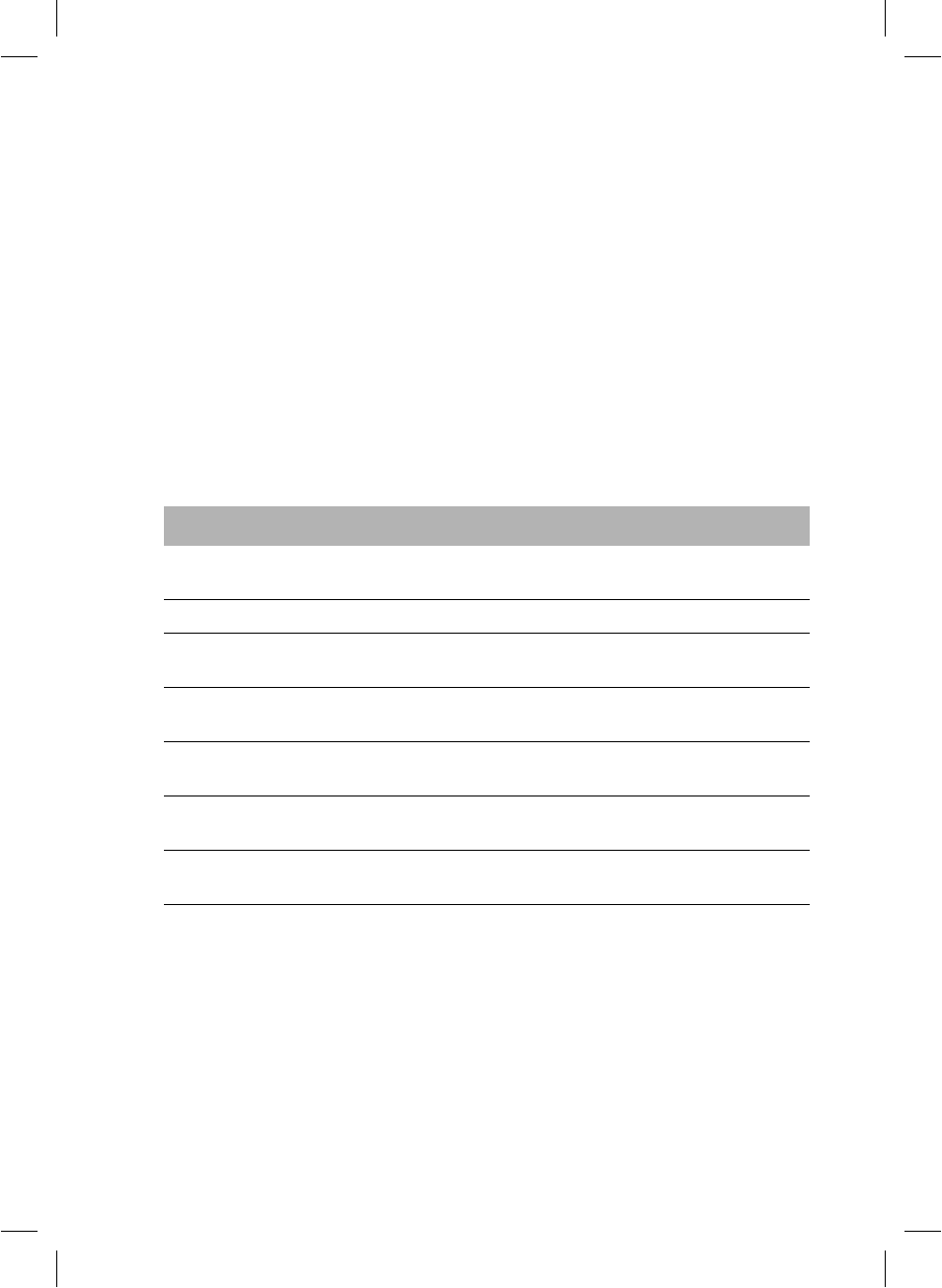
27Alarms
Alarms
The VPAP Adapt SV unit is fitted with alarms to alert you to changes that will
affect your treatment. The most common reason for an alarm to sound is
because the system has not been properly assembled. Check that the air tubing
and pressure sensor tube have been properly attached to the flow generator and
mask (and humidifier if used).
You can mute an alarm by pressing the Alarm Mute key once. Unless the alarm
requires you to turn the power off, you can press any key again to remove the
alarm message from the LCD screen. If the problem is still present the alarm will
sound and display again after one minute. The Alarm LED will remain lit for as
long as the problem is present.
All menus remain available during an alarm.
We recommend that you test the audible alarm once a week. To do this, hold
down the Alarm Mute key while the VPAP Adapt SV is starting up. If the alarm
is functioning correctly it will beep twice.
Low Mask Pressure Alarm
Triggered by:
• pressure sensor line is blocked or disconnected
• air pressure at the mask has fallen below a set level
• mask is removed and SmartStop has been disabled.
If a low pressure alarm sounds:
1. Check that the air tube and sensor tube are connected properly.
2. Turn the VPAP Adapt SV off and on again at the power switch. If the alarm
persists, return the unit to ResMed for servicing.
LCD message Alarm type Action
LOW PRESSURE!
Check circuit
Low mask pressure
alarm
Check tube connections.
LCD turns off Power fail alarm Turn off VPAP Adapt SV at power switch.
HIGH PRESSURE!
Turn power off
High pressure alarm Turn off VPAP Adapt SV at power switch.
HIGH AVG PRESS!
Turn power off
High pressure alarm Turn off VPAP Adapt SV at power switch.
HIGH LEAK!
Check circuit
High leak alarm Adjust the mask.
LOW PS!
Check circuit
Insufficient pressure
support alarm
Check tubing.
Run LEARN CIRCUIT.
FLOW BLOCKED!
Turn power off
Flow blocked alarm Turn off VPAP Adapt SV. Check air circuit.
Turn on VPAP Adapt SV.


















